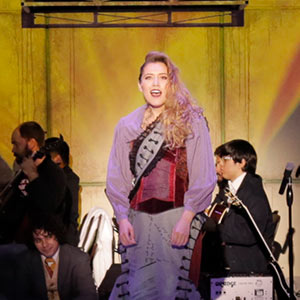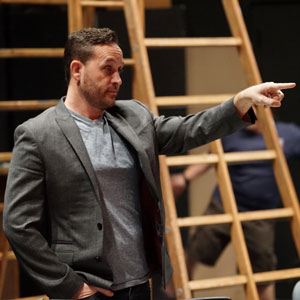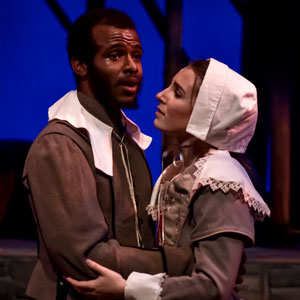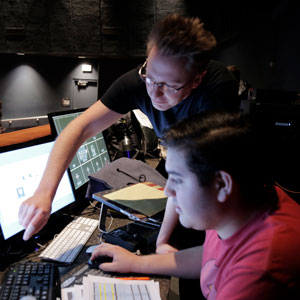'Equus'rises above usual theater fare
— Fullerton College Hornet - Richard Homan - Friday, May 29th, 1981After many unfortunate years of performances at the college level, the impression was spored that.
Rodgers and Hammerstein and Meredith Wilson were perennial saints of amateur theater. Dinosaurs like "Guys and Dolls," "The Music Man" and "South Pacific" were recooked and served, salt-free, to an audience made up of parents and guardians.
I'm not saying that these plays aren't swell. I mean, they're just dandy. But they are no longer relevant theater fare. They are waning nostalgia until their characters can rediscover and redefine themselves.
So, on Thursday, May 21, as huge Plummer Auditorium played redundant host to "Carousel," across the street in FC's Little Theater a small group of about 100 people was treated to the hopeful beginning of mdern theater on the Community College stage. It was opening night for "Equus."
A distinction needs to be made. When Fullerton College did "Jesus Christ Superstar" a few years back, the cast and crew delivered the play, but the spirit of the play never made it past the constricting Orange County border check.
The Fullerton College Theater Arts' "Equus" promised to return the full experience called
"THEATRE" back to the stage. It is the ensemble's good fortune and the final good fortune of the audience that those promises were fulfilled.
"Equus" is the Tony Award winning master effort of playwright Peter Shaffer. It evolves around a young boy who is arrested for savagely blinding six horses, and a psychiatrist whose every ounce of professional ardor is expelled in disclosing the "why" within the boy's behavior.
The boy, Alan Strang, and the psychiatrist, Dysatt, are the main characters in the play. The supporting members of the cast provide information and serve as a backdrop for the drama. They serve as screws to tighten the atmosphere that Dysart and Alan breathe.
In the Fullerton College production, all of the supporting cast each give thieir testimonies effectively and then fade out, making the air thinner and less breathable by their implied presence during soliloquies and rampaging discourses between the two beguiled main characters.
Barbara Pierce and Robert J. Sessions as Alan's parents are very effective as opposing bookends of guilt. Both blame themselves for their son's act of violence, yet each lashes out halfhearted attempts at anyone he can in order to avoid himself. The interpretation of the horses, using human beings, is necessarily heavy, ritualistic, and successfully evokes the thematic primitive feeling of the play.
Martin Goslin, as the psychiatrist, Dysart, affects a haunted, professional cool. Wearing impeccable
suits that fit like skin and speaking in a voice of calculated monotone, Goslin creates a dynamic asexual personality. His Dysart is an emotional hum that reaches each end of the spectrum of feeling, though it i§ distorted and static at the extremes; here his facade of confidence begins to break down, and his human doubts and weaknesses are seen. In this way, Goslin creates audience compassion for his character. His performance is one of exquisite reserve.
The character of Dysart the psychiatrist is in direct contrast to that of his patient Alan Strang. Alan gets to do all of the yelling, screaming and laughing. Alan does all of the crying. r it never once does Clay Wilcox' Alan ask for sympathy. Neither his voice nor his eyes ever give the impression that these heavy emotions are signs of weakness, only signs of life. Wilcox gives beauty and ability to his troubled Alan.
Like the austere wooden stage on which Goslin and Wilcox move in and out of their psycho-battles, all aspects of this production emphasize the characters of Dysart and Alan. And those two characters are steeped in sex, in religion, in violence and in passion. The play takes them marauding between the fine lines of each. The FC Theater Arts production of the play takes the audience with it into the tormented darkness of modern theater and modern taboo. It needs to apologize for nothing.








